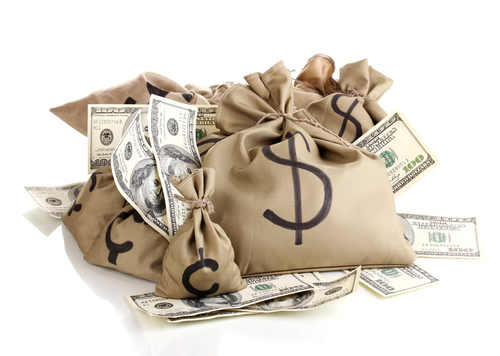You might have thought that cathode-ray tubes had gone the way of the dinosaurs as a result of the advent of flat screen displays and monitors. However, reality is that until not that long ago they were staples in the manufacturing of TVs and computer monitors. It turns out that for two decades one of the reasons prices for such products were high, and did not vary, is because, according to the European Commission (EC), there was collusion by a cartel composed of Phillips, Panasonic, LG, Samsung, Toshiba and French company Technicolor. Partly because such cases take time, and likely because the European Commission (EC) wants to send a message, it has come down hard on all six alleged conspirators. In fact, the penalties that total 1.47 billion euros ($1.92 billion) are the largest in anti-trust history.
Going beyond the boundaries of friendly competition
The Commission said executives from the companies met until six years ago to fix prices and divide up markets for TV and computer monitor cathode-ray tubes. They iterated that between 1996 and 2006, representatives of the companies met in Paris, Rome, Amsterdam and in Asia for "green meetings", so-called because they often ended in a round of golf.

Image via Shutterstock
"These cartels for cathode-ray tubes are 'textbook cartels': they feature all the worst kinds of anti-competitive behavior that are strictly forbidden to companies doing business in Europe," EU Competition Commissioner Joaquin Almunia said in a statement.
For those keeping score, here is how the fines break out:
- Phillips — fined 313.4 million euros (US $409.52 million). The company got hit the hardest for its leading role in price fixing and faces a further penalty through a joint venture.
- LG Electronics — fined 295.6 million euros (US$ 386.26 million) plus its share of a joint venture penalty.
- Panasonic — Corp which was fined 157.5 million euros (US$ 205.81 million).
- Samsung SDI — 150.8 million euros (US$ 197.05 million).
- Toshiba — Corp. 28 million euros (US$ 36.59 million).
- Technicolor — 38.6 million euros (US$ 50.44 million).
In addition, a joint venture between Philips and LG Electronics was penalized 391.9 million euros (US$ 512.10 million), while two Panasonic joint ventures were also sanctioned.
Philips chief executive Frans van Houten said the group would challenge what he called the disproportionate and unjustified penalty. Interestingly he did not deny the charges. However, Panasonic issued a statement saying it might also make a legal challenge since, "Panasonic believes the EU decision is factually and legally erroneous ... and will carefully review the decision and consider our options for appeal to the European courts," it said.
It should be explained that the reason for the focus on all of this, and why it makes such a good example is, as the EC’s Almunia explained, when noting that the violations were especially harmful for consumers, as cathode-ray tubes accounted for 50 to 70 percent of the price of a screen.
According to reports, Philips (which sold off the business which committed the infringement in 2001) said it would make a provision of 509 million euros (US$ 665.11 mil) in the fourth quarter for the fine. And, Technicolor said the fine, which will be booked as an exceptional item in its second-half accounts, would not affect its 2012 earnings and free cash flow targets.
A strong signal to those who might think anti-trust actions are lax
It may seem that the EC is picking on this market. Chunghwa Picture Tubes, Samsung Electronics, LG Display and three other LCD companies were penalized a total 648 million euros (US$ 846.74 million) two years ago for taking part in a cartel, and last year a fine of 128.74 million euros (US$ 168.17 million) was against four producers of the glass used in cathode-ray tubes. However, this can probably be attributed to the EC having developed a lot of expertise in the area.
How big and important is this? Prior to these fines the EC record was a 1.38 billion euro (US$ 1.8 billion) fine imposed on participants in a car glass cartel in 2008.
Since as mentioned these types of actions take time, and appeals are likely, there is no way of gauging where and for how much the EC may strike again in the tech area. Litigation seems to be the preferred way for battles between device manufacturers at the moment, but other areas, particularly in the component part of the manufacturing process are certainly fair game. If nothing else, the EC has sent a strong signal to the industry that it will not tolerate the attitude of “if you can’t beat them join them,” and that the price to be paid for getting to friendly will be severe.
Edited by
Brooke Neuman